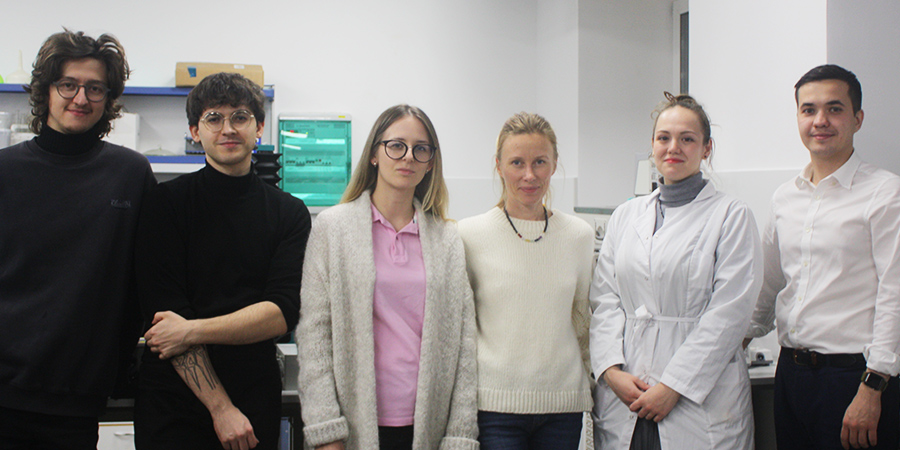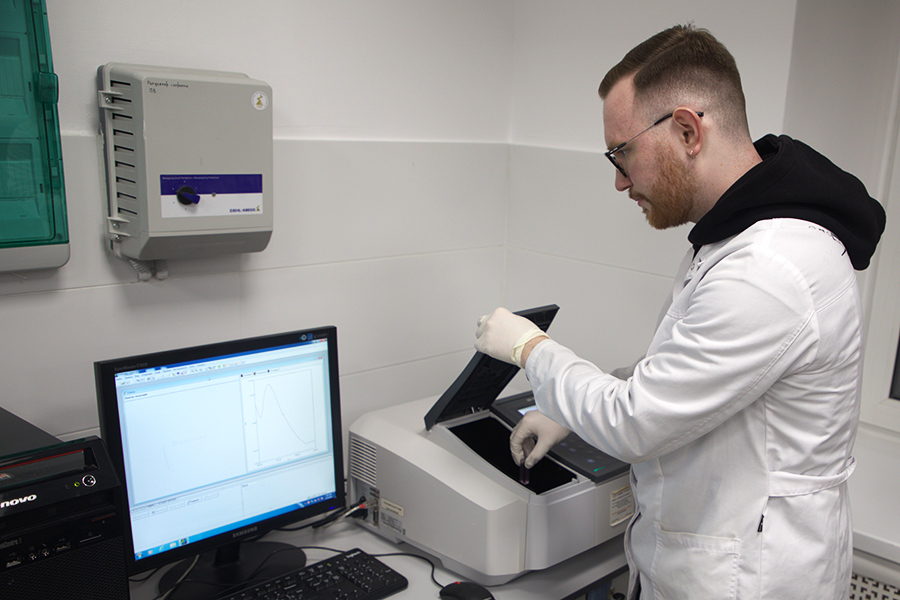Researchers have improved the nutritional value of plant-based milks through the implementation of simple pretreatment methods.
Scientists at the ITMO University in Russia have demonstrated how pre-freezing and ultrasound treatment of the raw materials of plant-based milk prior to processing can improve the nutritional profile and taste of the resulting product.

The ITMO scientists involved in the study.
Natalia Iakovchenko, corresponding author on the study, explained the significance of the research. ‘These findings are important in the context of plant-based products because they suggest that pre-treatment methods can be used to optimise the nutritional value and taste of plant milk, which may increase consumer acceptance and demand for these products.’
The study, published in SCI’s Journal of the Science of Food and Agriculture demonstrated that pre-freezing of raw ingredients prior to processing can boost the extraction of beneficial microelements such as iron, potassium, and zinc by up to 100%. Additionally, the use of ultrasound as a treatment method boosts nutritional components, known as polyphenols, in the resulting plant-based milk by 15-20%.
‘Polyphenols help protect the body against some forms of cancer, as well as inflammatory, cardiovascular, and neurodegenerative diseases. Ultrasonic treatment increases the yield of polyphenols, thereby increasing antioxidant activity and improving the nutritional value of plant milk’, explained Iakovchenko.
The researchers analysed the effects of pre-treatment methods on a variety of plants, including soy, rice, oats and peas. They found that, overall, pre-treatment methods optimised both the nutritional profiles and taste of the resulting milks, however Iakovchenko noted, ‘It was unexpected for us that pre-treatment affects and changes the quality indicators, such as nutritional profiles of plant milk to varying degrees, depending on the type of plant material.’

A researcher uses the colorimeter to analyse phenolic content.
Significantly, the researchers note that pre-freezing and ultrasound treatment are relatively simple methods for optimising the production of plant-based milk. Iakovchenko explained, ‘We wanted to try something that is easy to implement into the production scheme and understand how we can influence the composition of plant milk without adding additional components.’
‘We hope that the results of these studies will allow producers to better understand the processes occurring during the production of plant milk and that, using simple methods of processing raw materials introduced into the technological chain, give the possibility to reduce the use of additional ingredients to obtain stable plant milk that can compete with traditional types of animal milk’, she said.
The authors note that further work is needed to assess how these pre-treatment methods affect other characteristics of plant-based milks which are important to both producers and consumers – for example, shelf-life.
Now the researchers are turning their attention to the effect of pre-treatment methods on other products. ‘We are going to investigate the effect of pre-processing of plant raw materials to produce plant-based fermented foods’, noted Iakovchenko.
Influence of pre-treatment methods on quality indicators and mineral composition of plant milk from different sources of raw materials
Filipp V. Lavrentev, Darina A. Baranovskaia, Valerii A. Shiriaev, Daria A. Fomicheva, Viktotiia A. Iatsenko, Maksim S. Ivanov, Mariia S. Ashikhmina, Olga V. Morozova, Natalia V. Iakovchenko
To read and cite the full paper, please visit:
doi.org/10.1002/jsfa.12992

